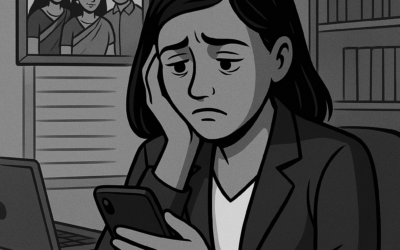Game of Thrones (GoT) is a popular television series that aired on HBO from 2011 to 2019. Based on a series of novels by George R.R. Martin, it tells the story of several noble families vying for control of the fictional kingdom of Westeros. The show features a sprawling cast of characters, complex political machinations, and epic battles between rival factions.
Becoming a GoT fan is a journey that starts with the first episode and never ends with the last. As a die-hard fan, I can attest that there are several factors that contribute to falling in love with this epic fantasy series. First and foremost, the show’s intricate storyline and richly developed characters initially drew me in. From the very beginning, it was clear that this wasn’t your average fantasy show with clear heroes and villains. Instead, the characters are multidimensional, with complex motives and backstories that make them both relatable and fascinating to watch. However, it’s not just the characters that make the show great.
The visuals and cinematography are also outstanding. From the sweeping landscapes of Westeros to the elaborate battle scenes, Game of Thrones is a feast for the eyes. The attention to detail in the costumes, makeup, and set designs makes it feel like you’re truly living in this fantastical world. Additionally, the social and cultural influence surrounding the show can play a role in becoming a fan. With the show’s immense popularity, it’s hard to avoid hearing about it in everyday life.
Let’s not forget the countless memes, merchandise, and fan communities that have sprung up around the show. Being a fan of Game of Thrones means being part of a larger cultural movement. Personally, the show’s genre is also a big draw. The combination of political intrigue and drama in GoT perfectly fits since I’m a fan of fantasy and medieval-themed stories. Finally, being able to binge-watch the show on streaming platforms like HBO Max or Disney+ Hotstar is another reason why so many people become fans. Being able to watch multiple episodes in a row allows you to fully immerse and invest in characters.
All of these factors combined make Game of Thrones more than just a TV show—it’s an experience. It takes you on a journey through a magical world filled with unforgettable characters and breathtaking visuals. Even though the show has come to an end, the memories and the love for the show will always remain for fans like me.
The Game of Thrones Effect: How Fandom and Consumerism are Intertwined
Consumerism refers to the culture of consumption. People are encouraged to buy goods and services beyond their basic needs. This is often with the goal of increased economic growth. It involves the promotion of consumer goods.
The show has inspired a wide range of consumer products, including books, clothing, jewelry, and collectibles. Companies have capitalized on the show’s popularity by releasing branded merchandise. This includes action figures, board games, and even a line of GoT themed beers.


The show has also become a marketing tool for other products and services. For example, tourism boards have promoted “Game of Thrones” themed tours of filming locations. While airlines have offered flights to these destinations. In some cases, products have been created specifically to tie in with the show’s themes and motifs. For example, GoT makeup.
While the commercialization of “Game of Thrones” has generated significant revenue for the show’s creators and partners. Some argue that the relentless marketing and promotion of GoT merchandise encourages people to buy more than they need. Thus contributing to environmental degradation and other social issues. Others argue that the commercialization of the show detracts from its artistic and cultural value, reducing it to a mere commodity for consumption.
Positive And Negative Sides Of The Show
From a fan’s point of view, the commercialization of “Game of Thrones” is both positive and negative.
On the positive side, fans can feel a sense of connection and community through the shared experience of consuming GoT merchandise. They wear clothing or accessories featuring the show’s symbols and characters. People also participate in GoT themed events and parties. They even collect memorabilia that reminds them of their favorite characters and moments from the show. This can create a sense of identity and belonging. Additionally, the availability of “Game of Thrones”-themed products can enhance the overall enjoyment of the show for fans. For example, playing board games or video games based on the show’s storyline adds another layer of engagement and entertainment to their viewing experience.
On the negative side, fans may feel the pressure to consume GoT merchandise in order to demonstrate their fandom. Or even to keep up with other fans. This pressure can contribute to a culture of consumerism, where fans feel compelled to buy more than they need or can afford. Furthermore, fans may feel disappointed or even betrayed if the commercialization of GoT leads to a decrease in quality or artistic integrity. If the show’s creators prioritize profit over storytelling or character development, fans may feel that the show has lost its original appeal and become just another commodity for consumption.
As a fan, I can see how consumerism plays a role in my relationship with the show. Even though the show came to an end in 2019, I still find myself revisiting episodes. GoT was a significant part of my routine for a while, watching at least one episode a day or even snippets. Letting go of the characters was hard.
Later, I continued to show my love for GoT through my ringtone, laptop stickers, keychain, and wallpapers. While it is primarily driven by my enjoyment of the story and characters, consumerism does play a role in how I experience and engage with the show. Whether it’s through merchandise, streaming services, or fan experiences, consumerism is a part of the larger cultural phenomenon surrounding GoT. However, I’m eagerly waiting for George R.R. Martin, the author of the books, to release the last book so that I can find closure and let go of the disappointment caused by the show’s last season.
In conclusion, “Game of Thrones” has been heavily commercialized and marketed, contributing to a culture of consumerism. While the show’s popularity has generated significant revenue for its creators and partners, the commercialization of the show has also been criticized for its environmental and social impact, as well as its potential to detract from the artistic and cultural value of the series.




0 Comments